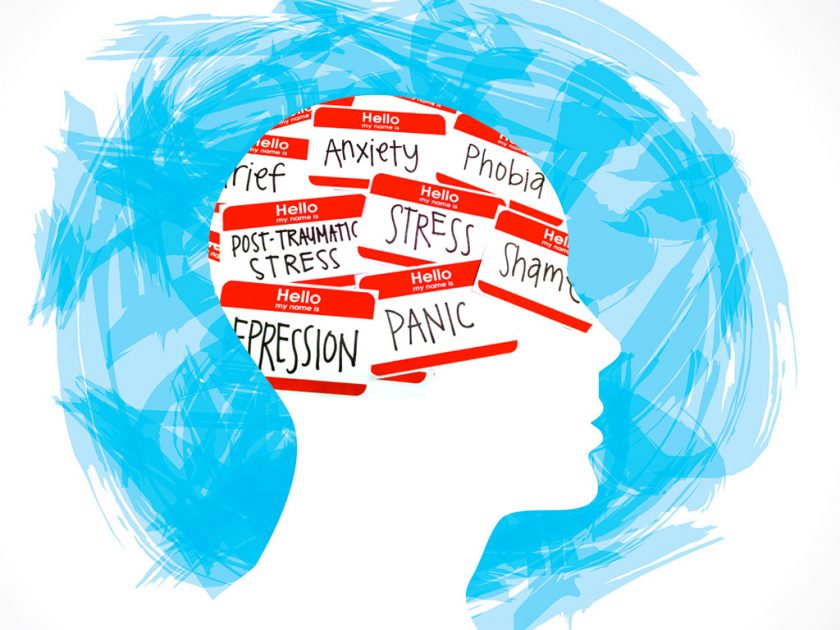What is a mental health?
Mental health refers to your well being, both emotional and psychological. Getting good mental health helps you lead a safe and reasonably happy life. It allows you to show strength and the ability to deal with challenges in the face of existence.
Several factors can affect your mental health, including life events or even your genetics.
Several strategies can help you improve and sustain healthy mental health. This may include:
• Maintenance of the right mindset
• Remaining physically involved
• Supporting other people
• Gaining ample sleep
• Consuming a balanced diet
• Ask for licensed mental health support if you need it.
• Socializing with individuals whom you enjoy spending time with
• Forming and using productive coping abilities to cope with the issues.
What is mental illness?
A mental disorder is a general concept that covers a wide range of situations that influence the way you feel and think. Your ability to get through everyday life can also be affected. Several different factors can influence mental illnesses, including:
• genetics
• environment
• daily habits
• biology
Mental health symptoms
Each kind of mental illness causes symptoms of its own. But some similar features are shared by many.
Common indications of multiple mental illnesses may include:
• Not eating enough or overeating enough
• Catching insomnia or getting too much sleep
• Distancing yourself and favorite hobbies from other people
• Feeling fatigued, even with adequate sleep
• Feeling numbness or loss of empathy
• Experiencing mysterious pains or soreness throughout the body
• Feeling desperate, powerless or lost
• More than ever before, smoking, drinking or eating illegal drugs
• Feeling uncertainty, oblivion, irritability, annoyance, anxiety, depression, or fear
• Battling or fighting continuously with friends and relatives
• Getting intense mood swings that trigger issues with relationships
• Constant memories or emotions that you are unable to get out of your mind
• Hearing voices that you cannot avoid in your head
• Having thoughts of injuring yourself or other individuals
• Not able to manage day-to-day tasks and chores
An outbreak of symptoms can lead to stress and periods of emotional distress. That can make it difficult for you to maintain regular activities and actions. A nervous or mental breakdown is often called this phase.
Mental health recovery
Many people with mental health problems will and can find effective therapies. That means you’re able to get better. However, some mental health conditions are persistent and constant, but even these can be handled with proper counseling and intervention.
Recovery from mental health conditions or problems requires a constant commitment to your mental and general health, as well as adherence to the methods in behavioural therapy obtained from a therapist.
Treatments such as medication may be required on an on-going basis in some cases; others may be able to avoid using them at some stage. For you, what recovery would mean is different than recovery for another person.
Four Keys to Mental Health Recovery
Mental illnesses can be crippling and demoralizing. One can find endless advice on maintaining one’s mental health and on recognizing mental illness. Still, today I would like to distil the critical factors for mental health recovery into four brief points. The four most essential elements in mental health recovery are housing, employment, stabilization of medication and symptom interference, and the development of a social network.
Housing is one of the most basic human needs, regardless of whether one has a mental illness or is considered entirely healthy. When one reviews the statistics, the rate of homeless individuals who have an untreated mental illness is positively alarming. What is even worse is if these individuals cannot afford basic shelter, there is little hope that they are receiving proper medications, meaning a continual downward spiral is about to take place. Obtaining stable housing is likely the most crucial factor for mental healthcare consumers on the road to recovery.
Now it is time to explore what practitioners and consumers alike can do to obtain housing. For mental health practitioners, one must focus upon finding affordable or government-subsidized housing for the mental healthcare consumer, ideally in a situation which removes them from their immediate environment (as it is prone to lead to relapses or continued substance abuses, etc.). Most significant cities have government subsidized low-income apartment complexes that you can look into for such consumers. For the mental healthcare receiver, one must recognize that housing is critical to almost every function in life and seeking out accommodation in a shelter is far better than winding up on the streets. Also, an address will be required to find employment and to receive social security insurance payments if the qualifications for such payments are met, thus making housing crucial to mental health recovery.
Once one finds housing, employment is essential on the road to empowerment and self-sustainability. One point is critical; however: do not take on too much too fast. It is okay to re-enter the workforce slowly. Take a part-time position, adjust to that, and if you feel you are ready after a month or two, take on a full-time place. This is also a great time to go back to school if you have been looking into that. Anything with a technical skill will put you in much better standing so lean towards that if you can.
With employment comes the concern of money management. If an individual with a mental illness cannot responsibly manage their money, a family member or treatment centre fund should be given control of the individual’s funding. Now, this is a very touchy subject so if a mental health consumer is relinquishing control of the budget to insure no purchase of illegal substances occurs; one must guarantee the controlling program is reputable, in good standing, and competently managed.
Medication and symptom stabilization is the third of the four keys to mental health recovery. The proper ratio of drugs can take time and does alter one’s chemical and hormonal balances thus can be a rather painful process, but it is worth the battle. So many breakdowns are due to mental health consumers going off their medications or improper medication balances, which is a travesty considering the avoidability of said occurrences. Take the time to find the right combination, this will allow for stabilization of symptom interference levels, which will then contribute to one’s ability to maintain adequate employment therein ability to afford appropriate housing and independence.
The fourth and final key to mental health recovery is building a strong, proactive social network. Isolation and alienation are widespread among those with a mental illness who have experienced a severe psychotic break. One must seek out a supportive network, be it consisting of family, friends, or other individuals on the road to recovery from their mental illness. The American Clubhouse model for mental healthcare facilities is great for finding an active social network. While some consumers complain that such groups solely sit around and talk, over time, this talking will turn into productive, employment-oriented endeavours. One must, however, remove themselves from any social network that could contribute to a relapse of the original mental condition.
Housing, employment, stabilization, and social network development are the critical keys to mental health recovery. Housing drives engagement, and job makes housing affordable. Work allows for the ability to afford proper medications, which leads to stabilization. Stabilization consequently aids employment, thus making housing an even greater reality. All of this is dependent upon the loving support of a social network. These are the keys to mental health recovery.
![DJ Baddo – All Of Me Remix ft John Legend [AuDio]](https://www.naijavibe.net/wp-content/uploads/wordpress-popular-posts/94409-featured-40x40.jpg) DJ Baddo – All Of Me Remix ft John Legend [AuDio]
DJ Baddo – All Of Me Remix ft John Legend [AuDio] ![Drake - One Dance ft Wizkid & Kyla [AuDio]](https://www.naijavibe.net/wp-content/uploads/wordpress-popular-posts/124692-featured-40x40.jpg) Drake – One Dance ft Wizkid & Kyla [AuDio]
Drake – One Dance ft Wizkid & Kyla [AuDio]  Dj Kamol – Crazy Gyration ft Skailey Normal [AuDio]
Dj Kamol – Crazy Gyration ft Skailey Normal [AuDio] ![Mr. Charis - All Back ft Zouwrah [AuDio]](https://www.naijavibe.net/wp-content/uploads/wordpress-popular-posts/67331-featured-40x40.jpg) Mr. Charis – All Back ft Zouwrah [AuDio]
Mr. Charis – All Back ft Zouwrah [AuDio] ![Davido - Aye [AuDio]](https://www.naijavibe.net/wp-content/uploads/wordpress-popular-posts/38417-featured-40x40.jpeg) Davido – Aye [AuDio]
Davido – Aye [AuDio] ![K-Solo - Yolo ft Klever Jay, Legely, Tea Jazz & Small Doctor [AuDio]](https://www.naijavibe.net/wp-content/uploads/wordpress-popular-posts/127832-featured-40x40.jpg) K-Solo – Yolo ft Klever Jay, Legely, Tea Jazz & Small Doctor [AuDio]
K-Solo – Yolo ft Klever Jay, Legely, Tea Jazz & Small Doctor [AuDio]  Sauti Sol – Live and Die in Afrika [Album]
Sauti Sol – Live and Die in Afrika [Album] ![Burna Boy – Yawa Dey [AuDio]](https://www.naijavibe.net/wp-content/uploads/wordpress-popular-posts/20589-featured-40x40.jpg) Burna Boy – Yawa Dey [AuDio]
Burna Boy – Yawa Dey [AuDio]  Ruger, D’Prince & Rema – One Shirt
Ruger, D’Prince & Rema – One Shirt ![Dj Baddo - Best Of 2Face [MixTape]](https://www.naijavibe.net/wp-content/uploads/wordpress-popular-posts/95030-featured-40x40.jpg) Dj Baddo – Best Of 2Face [MixTape]
Dj Baddo – Best Of 2Face [MixTape] ![Funbi - Hallelujah [AuDio]](https://www.naijavibe.net/wp-content/uploads/wordpress-popular-posts/132478-featured-40x40.jpg) Funbi – Hallelujah [AuDio]
Funbi – Hallelujah [AuDio]  Seyi Shay & Yemi Alade – Pempe
Seyi Shay & Yemi Alade – Pempe
 NaijaVibe NaijaVibe | Download Latest Nigerian Music & Mp3s
NaijaVibe NaijaVibe | Download Latest Nigerian Music & Mp3s


